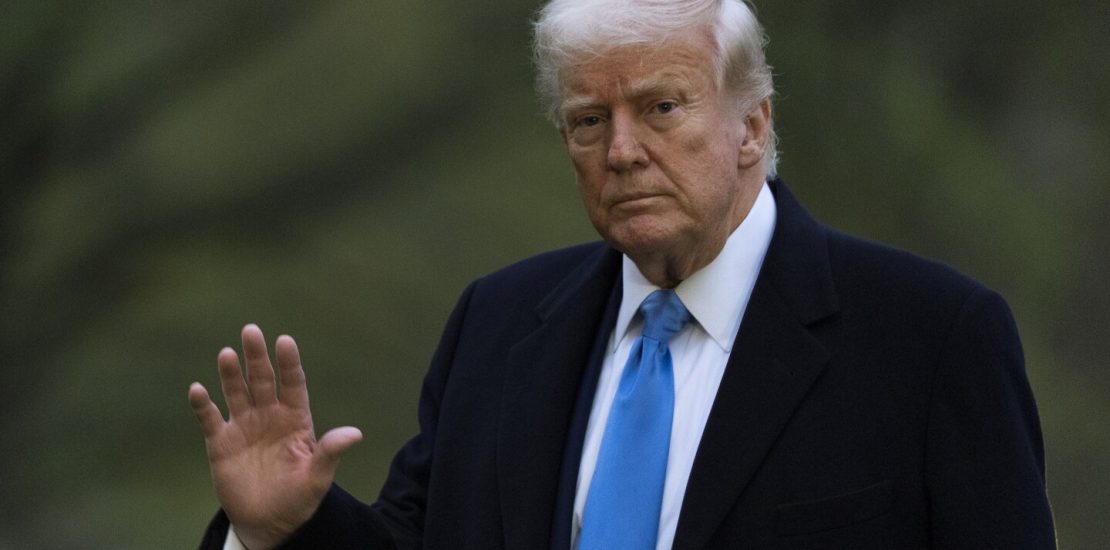- April 7, 2025
- Posted by: Regent Harbor Team
- Category: Global Economy

Contents
Trump’s Stubborn Tariffs
The saga unfolds as the President of the United States, Mr. Donald Trump, widens his trade war front with China, unperturbed by the financial nervosity echoing through Wall Street. In plain sight, Trump’s threats of imposing additional duties signify an intensification of this economic duel, inevitably stirring fret among economists and global leaders alike.
President Trump and the Unyielding Tariff Chess Game
Upon China’s announcement to retaliate against the tariffs Mr. Trump introduced the preceding week, Trump declared on Truth Social, "If China does not withdraw its 34% increase above their already long-term trading abuses by tomorrow, April 8th, 2025, the United States will impose ADDITIONAL Tariffs on China of 50%, effective April 9th.” Consequently, this pronouncement escalates the tension with our esteemed eastern counterparts. Notably, Trump’s resolution remains despite palpable pressure from the jittery financial markets.
Stock Market Reciprocation
The financial repercussions were almost immediate; the Dow Jones average declined by 0.9%. Likewise, the S&P 500 slipped by 0.2%, while the Nasdaq experienced a 0.1% drop. However, President Trump seemed to seek solace in his broader vision, describing these fiscal trials as necessary growing pains. "I don’t mind going through it because I see a beautiful picture at the end," he expressed, standing defiantly against the growing scepticism.
International Responses and Reactions
On the diplomatic front, there is no shortage of intriguing developments. In an interaction with Israeli Prime Minister Benjamin Netanyahu, Trump maintained silence on removing newly-imposed tariffs on Israeli goods. Furthermore, European Commission President Ursula von der Leyen has suggested the EU might seek fresh opportunities within trades outside the US market. For more insights into the EU’s trade approach, do explore "vast opportunities".
A Broader Trade Vision?
Moving our gaze to Japan, Prime Minister Shigeru Ishiba briefed Trump regarding his fears about how the tariffs could significantly impede Japanese investment into the States. Ishiba proposed negotiations as a remedy, articulating his perception of a looming "national crisis." Nonetheless, Mr. Trump’s insistence on balancing the trade discrepancies remains unwavering.
Domestication of the Dispute
Meanwhile, within American borders, the sentiment is similarly conflicting. Prominent hedge fund manager Bill Ackman has voiced concerns, albeit followed by a public apology. Such internal discord further complicates the delicate balance Trump’s administration is attempting to maintain with its economic policies.
Notably, Elon Musk has shown skepticism towards these tariffs, citing potential cost escalations for Tesla. His suggestion was to move towards zero tariff arrangements, possibly crafting a free trade zone between Europe and North America. Watch his video conference with Italian politicians for further discourse.
A Long Road Ahead
As trade adviser Peter Navarro rubbed shoulders with critiques and sought to delimit the impacts of tariffs alongside Trump’s agenda, clarity and conciliation seem distant, veiled in an air of unpredictability. If countries such as Vietnam aim to negotiate, they might have to address non-tariff issues too, as indicated by Navarro.
To stay abreast of future developments, follow AP’s coverage of President Donald Trump. Indeed, as these chapters of global trade redesign unfold, keen anticipation continues to grip the world stage.
For accompanying historical and economic insights on tariffs, reflect on how past trade wars have shaped economies.
